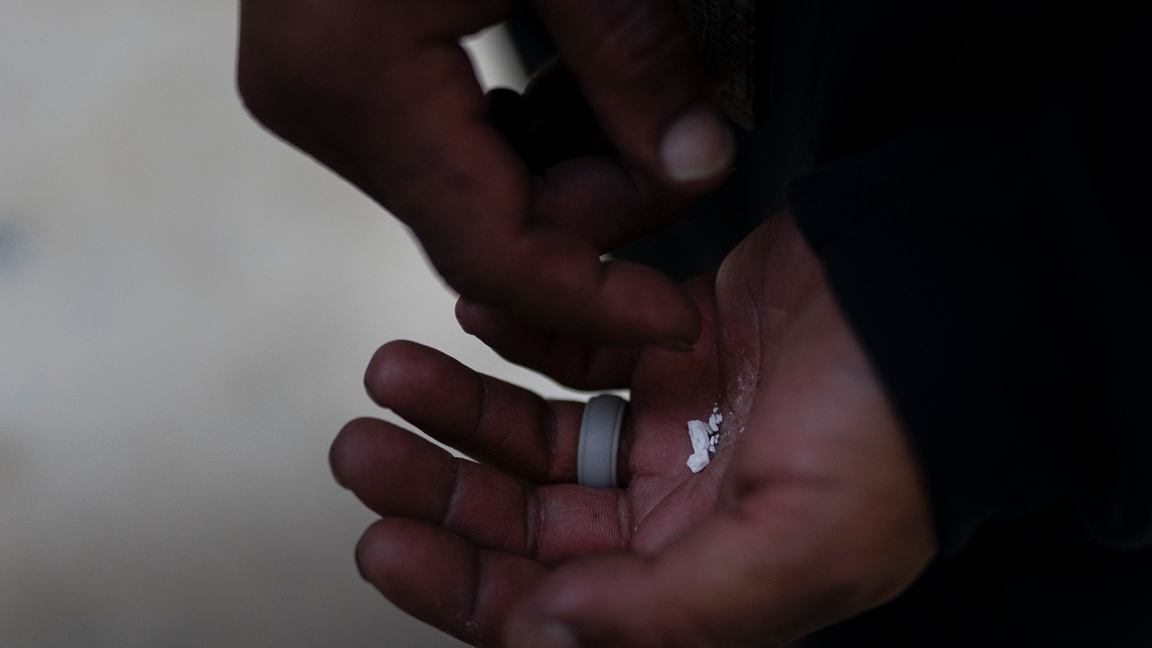
The legislation would make the distribution or possession of fentanyl above 10 grams and with an intent to distribute it a new first-degree crime. It would also make distributing or possessing 5 grams or more of the drug — and a new maximum amount of less than 10 grams — a second-degree crime. Additionally, the bill proposes lowering the threshold for distributing or possessing less than 5 grams of the drug to a third-degree crime.
A first-degree crime carries a prison sentence of 10 to 20 years, a fine of up to $200,000 or both. The bill also allows a fine of up to $500,000 imposed at sentencing.
Fentanyl continues to be one of the leading causes of overdose deaths in New Jersey and nationwide. Fentanyl was involved in 2,248 overdose deaths statewide in 2019, according to the most recent annual report provided by the Office of the Chief State Medical Examiner. But advocates of harm-reduction practices say the legislation will hurt people who use drugs and fuel the war on drugs that has led to higher rates of incarceration of Black and Hispanic people.
“My colleagues have been calling this bill a manifestation of Jim Crow and that’s really what it is,” Jenna Mellor, the executive director of the New Jersey Harm Reduction Coalition, said in an interview. “It doubles down on the war on drugs, which fuels racial injustice and ironically … increases overdose deaths.”
Last year, the state recorded the first year-over-year decrease in fatal drug overdoses in at least a decade. But while drug-related deaths may be declining overall in New Jersey, they are increasing among Black people and seniors of all races.
‘…it’s going to increase the likelihood of detention and incarceration, and there’s no racial and ethnic impact statement to see whether this is going to exacerbate New Jersey’s already stark racial disparities.’ — Yannick Wood, New Jersey Institute for Social Justice
The bill will have the exact opposite of its intended effect while hurting people struggling with their drug use, re-crowd prisons and jails, make the drug supply more deadly and make it less likely for people who use drugs to get help, Mellor said.
Currently in New Jersey it is a second-degree crime to manufacture, distribute, dispense or possess fentanyl in the amount of 1 ounce or more, according to the bill. This is the highest degree of crime for fentanyl and can include five to 10 years in prison, a fine of up to $150,000 or both. Additionally, it is a third-degree crime if a person distributes or possesses less than 1 ounce of fentanyl. This carries a sentence of three to five years in prison, a fine of up to $15,000 or both.
“Current law does not reflect the danger that fentanyl and fentanyl mixtures pose to our communities,” Sen. Joseph Lagana (D-Bergen), a primary sponsor of the bill, said in a statement. “This legislation would lower the threshold amounts of those substances it takes to establish a crime from the ounce-level to the gram-level.”
But advocates of harm-reduction practices and policies have said that lowering drug thresholds and increasing drug penalties is not the answer.
“Putting people behind bars isn’t going to end the overdose crisis,” said Elissa Tierney, who leads canvassing efforts for the Not One More NJ campaign. The campaign is made up of people from a number of statewide organizations, including the New Jersey Organizing Project, the New Jersey Resource Project and Sea Change Recovery Community Organization. “But we know that affordable and accessible treatment is a proven solution and I kind of wish our lawmakers would prioritize that,” she said.
‘Current law does not reflect the danger that fentanyl and fentanyl mixtures pose to our communities.’ — Sen. Joseph Lagana (D-Bergen), a primary sponsor of the bill
And the bill does not do anything to address the “root causes” of substance use disorder, including unaddressed mental health issues, a lack of employment opportunities and wealth disparities, according to Yannick Wood, the director of the criminal justice reform program at the New Jersey Institute for Social Justice.
“Frankly, in New Jersey, a lot of these disparities are racialized,” said Wood. “And that’s one thing that we don’t see in this bill. This is a bill that’s going to increase penalties so it’s going to increase the likelihood of detention and incarceration, and there’s no racial and ethnic impact statement to see whether this is going to exacerbate New Jersey’s already stark racial disparities,” he said.
The bill passed the Senate unanimously. An identical bill (A-5649) has been introduced in the Assembly.
